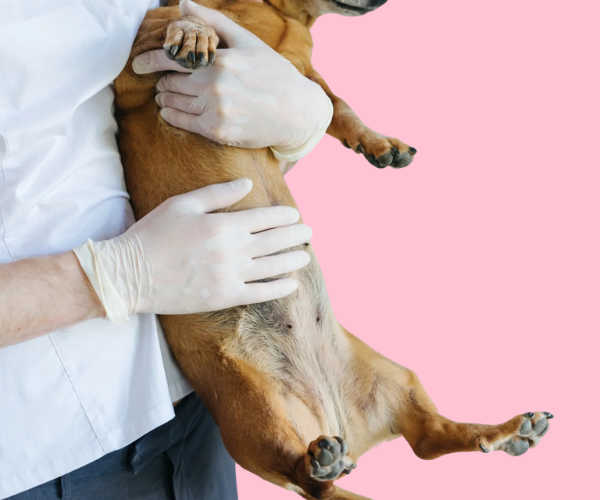Introduction
Have you ever caught your dog biting their privates and wondered why they engage in such behavior? This common canine behavior can sometimes be a cause for concern, so it’s essential to understand and address it. In this article, we’ll explore the medical and psychological reasons behind this behavior, providing you with the knowledge you need to help your furry friend.

Medical Causes Behind Dogs Biting Their Privates
There are several medical reasons why your dog might be biting their privates. One possible cause is skin irritation or infection in their private area. Just like humans, dogs can suffer from skin issues that cause itching or discomfort, leading them to bite or lick the affected area for relief.
- Allergies are another factor that can cause your dog to bite their privates. Dogs can develop allergies to a variety of things, such as food, pollen, or insect bites. When allergies cause itching or discomfort, your dog may bite the affected area to soothe themselves.
- Parasites, like fleas, ticks, or mites, can also cause your dog to bite their privates. These pesky creatures can make your dog’s life miserable by causing itchiness and irritation in their private area. Regular grooming and parasite prevention can help keep these critters at bay and ensure your dog’s comfort.
- Lastly, genital or urinary tract infections can lead to your dog biting their privates. These infections can cause pain and discomfort, prompting your dog to seek relief by biting or licking the affected area. If you suspect your dog has a urinary tract infection, it’s essential to consult your veterinarian for appropriate treatment.
Psychological Factors Behind Dogs Biting Their Privates
Aside from medical reasons, there are psychological factors that may cause your dog to bite their privates. Anxiety or stress-related behaviors can manifest in various ways, including excessive self-grooming or biting of their private area. Identifying and addressing the source of your dog’s stress can help alleviate this behavior.
Boredom is another psychological factor that can lead your dog to bite their privates. Dogs require both physical and mental stimulation to stay happy and healthy. If your dog is not getting enough mental or physical exercise, they may turn to self-grooming or biting their privates as a way to pass the time.
Compulsive or habitual behaviors can also cause your dog to bite their privates. These behaviors may develop for various reasons, such as a past medical issue or a coping mechanism for stress or anxiety. In some cases, these behaviors may require the help of a veterinary behaviorist to address and correct.

Determining the Cause of Your Dog Biting Their Privates
Figuring out why your dog is biting their privates is crucial to help them overcome this behavior. There are two essential steps to determine the underlying cause: observing your dog’s behavior and seeking veterinary advice.
Observing Your Dog’s Behavior
Pay close attention to your dog’s actions, specifically the frequency and duration of their biting. Keep an eye out for any additional behavioral changes that might indicate an underlying issue. This information will be helpful when consulting with your veterinarian.
Seeking Veterinary Advice
A veterinarian can help identify the cause of your dog’s behavior by conducting a physical examination focused on the private area. They may perform diagnostic tests, such as skin scrapings or blood tests, to rule out any medical issues. If necessary, they may refer you to a veterinary behaviorist to address any psychological or behavioral problems.
Addressing the Cause of Your Dog Biting Their Privates
Once the cause is determined, there are medical interventions and psychological solutions available to help your dog overcome this behavior.
Medical Interventions
If the cause is medical, your veterinarian may prescribe topical or oral medications to treat skin irritations or infections. Allergy treatments and management can help alleviate itching and discomfort caused by allergies. To prevent and control parasites, your veterinarian may recommend specific products or medications. For genital or urinary tract infections, your veterinarian will prescribe the appropriate treatment to help your dog recover.
Psychological and Behavioral Solutions
If the issue is psychological, there are several strategies to help your dog. To reduce anxiety, consider making environmental changes to create a calmer atmosphere. Providing enrichment activities, such as interactive toys or puzzle feeders, can help combat boredom and discourage excessive self-grooming.
Training and behavior modification techniques, like redirecting your dog’s attention when they start biting their privates, can help them break the habit. In severe cases of compulsive behavior, your veterinarian or veterinary behaviorist may recommend medications to manage your dog’s anxiety and compulsiveness.
Preventing Your Dog From Biting Their Privates in the Future
Helping your dog overcome the habit of biting their privates is essential for their well-being. To prevent this behavior from resurfacing in the future, focus on regular grooming and care, providing a stimulating environment, and creating a stress-free atmosphere.
Regular Grooming and Care
To keep your dog comfortable and healthy, it’s vital to establish a routine for grooming and care. Make sure you’re using proper bathing and brushing techniques to keep their skin and coat clean and free of irritants. Regularly check for parasites and use appropriate preventative measures to keep them at bay. Additionally, monitor your dog for signs of skin irritation or allergies, addressing any issues promptly to prevent discomfort.
Ensuring a Stimulating Environment
A bored dog may resort to biting their privates as a form of self-soothing or entertainment. Provide your dog with adequate physical exercise, such as daily walks, playtime, or other activities tailored to their energy level and breed. Incorporate mental stimulation through toys, games, or puzzle feeders to keep their minds engaged and discourage unwanted behaviors.
Creating a Stress-Free Environment
A calm, consistent environment can help reduce anxiety or stress-related behaviors in your dog. Establish a consistent routine that includes feeding, walking, and playtime to help your dog feel secure. Use positive reinforcement training methods, such as praise and treats, to build trust and reinforce desirable behaviors.
- Why Does My Dog Keep Biting His Privates?
- Will a Dog With Bloat Pee? – Bloat and Its Effects on Urination
- Why Do Dogs Mouths Quiver After Licking?
Conclusion
Addressing your dog’s habit of biting their privates and preventing future occurrences is crucial for their happiness and health. By focusing on proper grooming, providing a stimulating environment, and maintaining a stress-free atmosphere, you can help your dog live a comfortable life free of this behavior. Remember that responsible pet ownership and care play a significant role in your dog’s well-being, and never hesitate to seek professional help when necessary.

Doctor of Veterinary Medicine (D.V.M.) at Nation Taiwan University,Master of Science (M.S.) in Biomedical Engineering at National Taiwan University of Science and Technology




